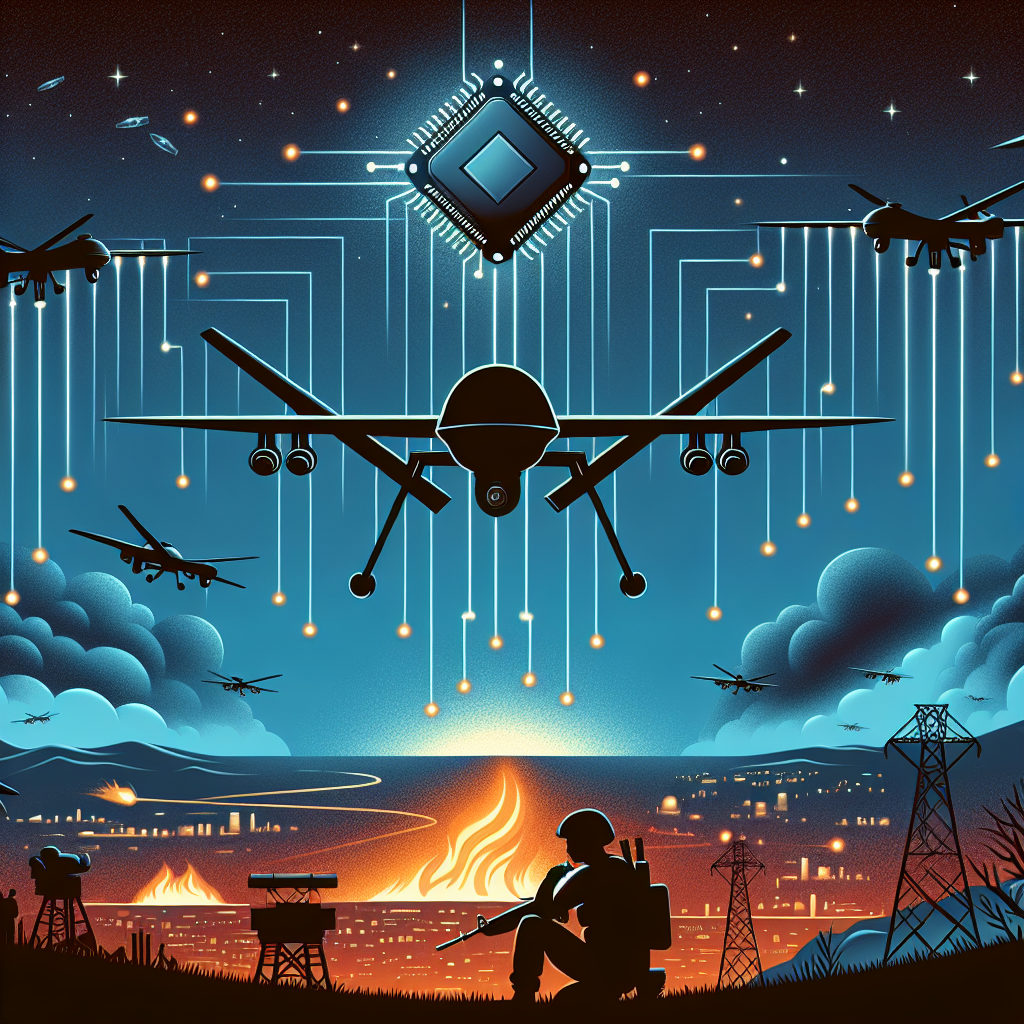Artificial Intelligence (AI) has rapidly advanced in recent years, with applications in various fields such as healthcare, finance, and transportation. One area where AI is increasingly being utilized is in the development of autonomous weapons systems. These systems have the ability to select and engage targets without human intervention, raising ethical and legal concerns about their use in warfare and conflict. In this article, we will explore the risks associated with AI-powered autonomous weapons and the implications for international security.
The development and deployment of autonomous weapons systems have the potential to revolutionize the way wars are fought. These systems can operate more quickly and effectively than human soldiers, making them attractive to military organizations looking to gain a strategic advantage on the battlefield. However, the use of AI in autonomous weapons also raises several ethical and legal challenges.
One of the primary concerns with autonomous weapons is the lack of human control over their actions. Without human oversight, these systems may make decisions that result in unintended harm to civilians or violate international humanitarian law. Additionally, there is the risk of these weapons being hacked or manipulated by malicious actors, leading to potential misuse or escalation of conflict.
Another issue with autonomous weapons is the difficulty in attributing responsibility for their actions. In traditional warfare, soldiers are held accountable for their actions on the battlefield. However, with autonomous weapons, it is unclear who should be held responsible for any violations of international law or human rights. This raises questions about accountability and the ability to seek justice for victims of autonomous weapons.
Furthermore, the deployment of autonomous weapons may lower the threshold for the use of force in conflicts. With the ability to target and engage enemies without human intervention, there is a risk that these systems could be used in a more indiscriminate and disproportionate manner. This could lead to increased civilian casualties and further destabilization of regions affected by armed conflict.
In response to these concerns, there have been calls for a ban or regulation of autonomous weapons systems. The Campaign to Stop Killer Robots, a coalition of non-governmental organizations, has been advocating for a preemptive ban on the development and use of fully autonomous weapons. Some countries have also expressed support for international regulations to ensure that AI-powered weapons are used in accordance with international law and ethical standards.
Despite these efforts, the development of autonomous weapons continues to advance, with several countries investing in research and development of these systems. The proliferation of AI-powered weapons raises the risk of an arms race in autonomous technology, with potentially devastating consequences for global security and stability.
In conclusion, the use of AI in autonomous weapons presents significant risks for warfare and conflict. Without proper regulation and oversight, these systems have the potential to cause unintended harm and violations of international law. It is essential for the international community to come together to address these challenges and ensure that AI-powered weapons are used in a responsible and ethical manner.
FAQs:
Q: What are autonomous weapons?
A: Autonomous weapons are systems that have the ability to select and engage targets without human intervention. These systems use artificial intelligence to make decisions about when and how to use force in combat situations.
Q: What are the risks associated with autonomous weapons?
A: The risks of autonomous weapons include the lack of human control over their actions, the potential for unintended harm to civilians, the difficulty in attributing responsibility for their actions, and the lower threshold for the use of force in conflicts.
Q: Are autonomous weapons already being used in warfare?
A: While there have been reports of autonomous weapons being used in conflicts, the widespread deployment of these systems is still limited. However, the development of autonomous weapons continues to advance, raising concerns about their potential use in future conflicts.
Q: What can be done to address the risks of autonomous weapons?
A: There have been calls for a ban or regulation of autonomous weapons systems to ensure that they are used in accordance with international law and ethical standards. It is essential for the international community to come together to address these challenges and prevent the misuse of AI-powered weapons.

